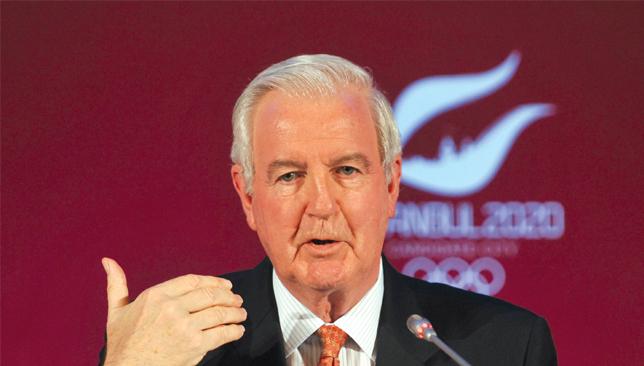
The Gulf’s bid to host the Olympic Games has received a boost with International Olympic Committee (IOC) Vice President Sir Craig Reedie saying they were open to dates being changed.
As football’s World Cup in 2022 is set to be moved from summer to winter to avoid the searing heat in host country Qatar, there is now hope that it could eventually lead to the biggest sporting event coming to the region for the first time.
Doha has twice failed in its bid to stage the Games in 2016 and 2020, while Dubai has also considered making an attempt to host “the Greatest Show on Earth”.
But with Qatar winning the rights for FIFA’s showpiece event and the likelihood of a World Cup in November-December or January- February, a potential bid for 2024 or 2028 might potentially get more support.
Reedie, speaking at the Doha GOALS conference, said: “It’s happened before with Sydney in 2000 when we were down there in September in their spring.
“The convention is the window has been between the European football season and the NFL season, and the beginning of July and the end of August has been the time to run an Olympic Games in the northern hemisphere.
“But if you want to take it somewhere that’s clearly hot you should have the right to say we want to host it in October or November.
“That seems to me to be perfectly legitimate and it’s up to the IOC to decide all things considered if that’s what happens.
“It will be interesting to see how many people come into the bidding process for 2024.
“I don’t know whether Qatar will come back; they’re hoping to host the World Athletics Championship in 2019 and I think there’s a case for cities of a certain size looking at what best suits the city.”
Should they win the bid for the 2019 World Athletics Championship, and with stadia in place for the World Cup, there is no doubt Doha will have a better chance of winning over doubters and staging another major event.
But a switch to October or November could also encourage Dubai to make a bid.
Meanwhile, Reedie, 73, says the IOC could have around $14 million (Dh51.4m) in the fight against doping after pledges of financial support from individual nations, including Turkey, China, US, Saudi Arabia and New Zealand.
“There’s a lot of very advanced thinking out there using technology against doping and hopefully we can use that,” he added.
“Would that work? I don’t know, but if we have a fund of $12-14m dollars we could have quite expensive research.
“I’m looking for the scientist who says we don’t have to test for urine or blood anymore and has got a much better idea.
“You know that machine you go through at the airport which says you’ve got a gun.
“Well, could someone say we’ve got that technology to show the last time an athlete took a dose of steroids?
“What we do need is to think outside the box and something easier would be helpful.”
Reedie admits more assistance is needed from governments around the world.
“When we were looking at the terms of the new (IOC anti-doping) code in Johannesburg there were absolutely outstanding contributions from leading athletes,” he said.
“They all said ‘please, please increase the sanctions, we do not want unclean athletes competing’.
“But governments must have the will to tackle the problem and introduce legislation.
“Unfortunately it’s not a high enough priority for them and one of the toughest jobs I have is to take it seriously.
“We had a Science of Investigation seminar in Istanbul last week and I flew back with a young American lad from the Food and Drug Administration.
“He told me that every day about 30 or 40 new illegal substances appear on the market and the World Anti-Doping Agency and sport can’t police that. But governments can.”